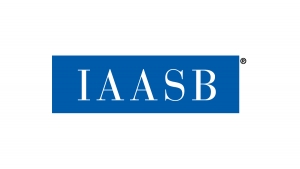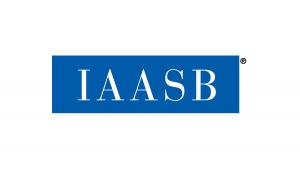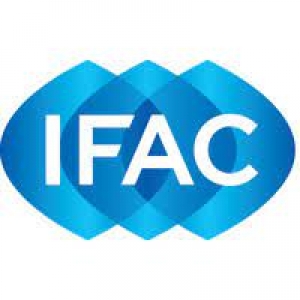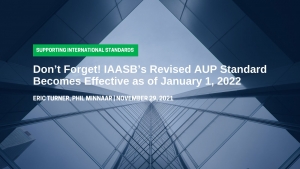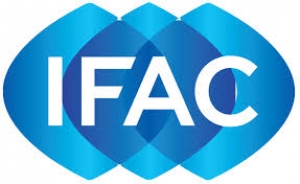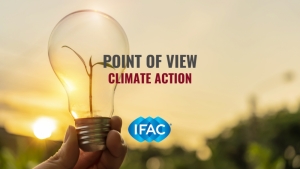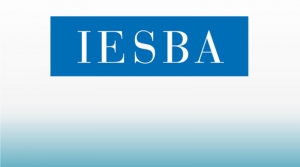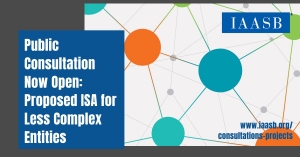عرض العناصر حسب علامة : IAASB
ترحيب من IAASB و IESBA بيان دعم IOSCO لتطوير المعايير المتعلقة بضمان المعلومات المتعلقة بالاستدامة
يرحب مجلس معايير التدقيق والتأمين الدولي (IAASB) ومجلس معايير الأخلاقيات الدولية للمحاسبين (IESBA) بإعلان اليوم من المنظمة الدولية لهيئات الأوراق المالية (IOSCO) عن دعمها وتشجيعها لعمل IAASB و IESBA على تطوير المعايير المتعلقة بالتأمين.
دليل تنفيذ جديد متاح لتحديد وتقييم مخاطر التحريف الجوهري في تدقيق البيانات المالية
يقدم IAASB الدعم لمقترحات ISSB وتعليقاته على ضمان مسودتي معايير الإبلاغ عن الاستدامة
معلومات إضافية
-
المحتوى بالإنجليزية
IAASB OFFERS SUPPORT FOR ISSB PROPOSALS AND COMMENTS ON ASSURABILITY OF THE TWO DRAFT SUSTAINABILITY REPORTING STANDARDS
The International Auditing and Assurance Standards Board (IAASB) has submitted a response to the International Sustainability Standards Board (ISSB) on its exposure drafts on sustainability- and climate-related disclosures. In its response, the IAASB noted the importance of reliable, high-quality, globally consistent sustainability reporting that investors and regulators are able to trust.
“The reliability and quality of sustainability reporting and supporting investors’ and regulators’ trust in the sustainability information hinge on the effectiveness of the external reporting supply chain,” noted IAASB Chair Tom Seidenstein. “As in financial reporting, external assurance has a key role in contributing to reporting reliability and investor confidence. This is why the IAASB’s feedback focuses on the ability of practitioners to obtain assurance on an entity’s sustainability reporting prepared in accordance with the ISSB draft standards, and why we’re committed to collaborating with and supporting the ISSB.”
The IAASB highlighted the value of long-term cooperation between the IAASB and ISSB, as well as the International Ethics Standards Board for Accountants, to strengthen the connectivity between sustainability reporting external sustainability assurance, and ethical standards—especially as standards become increasingly refined and enhanced. External assurance should play a crucial role in enabling organizations to demonstrate that the sustainability information reported is reliable and credible.
The IAASB has begun its journey to sustainability reporting assurance standards: at the June 2022 IAASB meeting, the IAASB committed to its next steps in developing a bespoke assurance standard for sustainability reporting. This journey to enhanced sustainability assurance standards was noted recently by the Financial Stability Board’s decision to include the IAASB’s work in its Climate Roadmap.
قيادة التغيير لتعزيز الثقة في عمليات التدقيق والتأكيد
نشر مجلس معايير التدقيق والتأمين الدولية (IAASB) اليوم تقريره العام الذي يوضح بالتفصيل دعمه للمصلحة العامة للسنة المنتهية في 31 ديسمبر 2021.
معلومات إضافية
-
المحتوى بالإنجليزية
SPEARHEADING CHANGE TO ENHANCE CONFIDENCE IN AUDITS AND ASSURANCE
The International Auditing and Assurance Standards Board (IAASB) today published its Public Report detailing its support for the public interest for the year ended December 31, 2021. During this 12-month period, the IAASB approved the final revised standard on group audits, agreed its Work Plan for 2022-2023 that included a dedicated workstream on enhanced sustainability assurance standards, and developed and implemented its Framework for Activities, among other actions.
The year 2021 also included the transformational milestone of launching IAASB’s first fully digital handbook, in collaboration with the International Federation of Accountants. The new online platform, e-International Standards (eIS), highlights the IAASB’s commitment to improving the usability of, and access to, its standards by harnessing technology.
معيار ارتباطات الإجراءات المتفق عليها AUP سيصبح ساري النفاذ قريبا
لا تنسى! أصبح معيار ارتباطات الإجراءات المتفق عليها AUP المعدل الصادر عن IAASB ساري النفاذ اعتبارًا من 1 يناير 2022
معلومات إضافية
-
المحتوى بالإنجليزية
Don’t Forget! IAASB’s Revised AUP Standard Becomes Effective as of January 1, 2022
ERIC TURNER, PHIL MINNAAR | NOVEMBER 29, 2021
Agreed-upon procedure (AUP) engagements are widely used in many jurisdictions. Demand for AUP engagements continues to grow, particularly related to needing increased accountability around funding and grants. Changes in regulation have also driven increased demand for AUP engagements, especially from smaller entities, as increased audit exemption thresholds in some jurisdictions prompt stakeholders to look for alternative services to an audit or other assurance engagements.
In December 2019, the International Auditing and Assurance Standards Board (IAASB) approved International Standard on Related Services (ISRS) 4400 (Revised), Agreed-Upon Procedures Engagements to respond to this growing demand.
AUP Engagements
In an AUP engagement, the practitioner performs procedures that have been agreed upon by the practitioner and the engaging party. The practitioner communicates the procedures performed and the related findings in the AUP report. The engaging party and other intended users consider for themselves the appropriateness of the AUP and findings reported by the practitioner and draw their own conclusions from the work performed by the practitioner.
ISRS 4400 (Revised) promotes consistency in the performance of AUP engagements and intends to address public interest issues relevant to AUP engagements, for example:
Responding to needs of stakeholders—the scope is broadened to include both financial and non-financial matters;
Professional judgment—new requirement and application material on the role of professional judgment in an AUP engagement;
Independence—new requirements and application material on disclosures in the AUP report relating to the practitioner’s independence;
Engagement acceptance and continuance considerations—new requirements and application material addressing conditions for engagement acceptance and continuance in an AUP engagement;
Use of a practitioner’s expert—new requirements and application material to address using the work of a practitioner’s expert in an AUP engagement; and
AUP report restrictions—new application material on the practitioner’s considerations if they wish to place restrictions on the AUP report.
The revised ISRS will be effective for AUP engagements for which the terms of engagement are agreed on or after January 1, 2022. For engagements covering multiple years, practitioners may wish to update the terms of engagement so that the AUP engagements will be conducted in accordance with the revised standard.
Other Resources That Can Help You Get Ready for Our AUP Standard
With the revised AUP standard coming into effect soon, these two resources from IAASB and the International Federation of Accountants (IFAC), can help you get ready:
IAASB’s ISRS 4400 (Revised) Fact Sheet, which includes a high-level overview of significant changes, to help you navigate and apply the standard.
IFAC’s Agreed-Upon Procedures Engagements, which outlines what an AUP engagement is, identifies the benefits to clients of offering such services, and explains when an AUP engagement is appropriate. It also includes examples of financial and non-financial subject matters, six short case studies with example procedures that might be applied, and two illustrative AUP reports.
استبيان استشارات المنشات الأقل تعقيدًا
معلومات إضافية
-
المحتوى بالإنجليزية
IAASB & IFAC RELEASE LESS COMPLEX ENTITIES CONSULTATION SURVEY
New Way to Participate in the Consultation Available in English, French, Spanish
Nov 15, 2021 | New York, New York | English
In late July, the International Auditing and Assurance Standards Board (IAASB) opened a six-month public consultation on its landmark new proposed standard for audits of financial statements of less complex entities (LCEs).
While the IAASB encourages all interested stakeholders to respond to the consultation in writing, it recognizes that some may not have the time or resources to do so. To help, the International Federation of Accountants and the IAASB developed a survey to offer an alternative way to participate in the consultation and provide your views. The survey is open until January 14, 2022 and is available in English, French and Spanish by clicking the language selector in the survey’s top right corner.
Survey responses will be analyzed by the IAASB alongside all other feedback and help shape the final standard; individual survey responses are confidential. - البلد الأردن
برايس ووترهاوس كوبرز تضيف 100 ألف وظيفة!
تستثمر شركة برايس ووترهاوس كوبرز 12 مليار دولار عبر أعمالها العالمية في إصلاح شامل يستهدف عمليات تدقيق أفضل
معلومات إضافية
-
المحتوى بالإنجليزية
PwC to add 100K jobs in $12B strategic revamp
PricewaterhouseCoopers LLP is investing $12 billion across its global business in an overhaul targeting better audits, digitization of services and greener operations.
The professional-services provider will hire 100,000 employees and develop the skills of existing staff over the next five years as it seeks to respond to the post-pandemic operating environment, it said in an emailed statement on Tuesday.
“We will continue to evolve our ways of working, and expand our capabilities in the areas that matter most for the future, while remaining steadfast in our commitment to quality,” PwC Chairman Bob Moritz said. “We want our people to be the most sought after in the market.”
Auditors are grappling with managing quality amid a shift in ways of working introduced by the COVID-19 pandemic. The International Auditing and Assurance Standards Board has revised standards for auditors, coming into effect in 2022, to boost technology use, help manage new risks, and improve quality management.
PwC is also seeking ways to address growing calls for transparency in the profession from stakeholders after several accounting scandals among the Big Four auditing firms knocked public trust. In South Africa, for example, KPMG has put in place a variety of reforms after it came under fire in 2017 for work done for a politically connected family accused of plundering the government’s coffers.
The South African unit of PwC will add at least 2,500 new employees over the next five years, Chief Executive Officer in the region Dion Shango told reporters in a conference call. Across Africa, where it has a presence in 34 countries, the firm plans to bulk up its operations with a $400 million investment. The company is also interviewing for non-executive directors to strengthen audit oversight.
PwC has also set aside $3 billion of its total global investment to help double the scale of its Asia-Pacific operations, it said. The firm’s spending will also focus on responding to environmental, social and governance trends across its operations.
خمسة مجالات لمحو الأمية المناخية للمحاسبين
وجهة نظر الاتحاد الدولي للمحاسبين بشأن العمل المناخي تحدد التأثير الهائل للمنظمات الأعضاء البالغ عددها 180 في الاتحاد الدولي للمحاسبين وما يزيد عن 3.5 مليون محاسب مهني في دفع التحول والتكيف مع تغير المناخ.
معلومات إضافية
-
المحتوى بالإنجليزية
IFAC’s Point of View on climate action outlines the enormous influence IFAC’s 180 member organizations and the over 3.5 million professional accountants yield in driving climate change transition and adaptation.
As Mark Carney, COP26 Finance Adviser and UN Special Envoy, put it at the 2020 IFAC/ACCA Climate Week event, the accountancy profession is essential in achieving a low-carbon transition. The contribution of an individual accountant will of course depend on their role but there are few roles that accountants undertake which do not require thinking about climate impacts and their financial consequences.
The transition to a below 2-degree Celsius Net-Zero world really needs climate-literate accountants who can take a climate-conscious approach to
advising their clients and employers on the risks, liability and reputational damage arising from corporate activity that negatively contributes to climate change;
supporting the strategic, operational and financial assessment of climate change and steering an organization toward the opportunities that decarbonization brings; and
providing investors the information they need to understand the current and prospective impact of climate-related matters on an organization and its financial position and prospects.
Becoming climate-literate isn’t a nice to do aspirational goal. A low-carbon transition is underway and will change how economies operate creating both uncertainty and significant opportunities. Politicians, regulators, and institutional investors, and asset managers have all elevated their game.
Governments and businesses are setting Net Zero emissions targets with about 120 governments and a fifth of the world’s 2,000 biggest listed companies having made Net Zero commitments. More than 40 asset managers including Vanguard and BlackRock, signed up to the Net Zero Asset Managers Initiative pledging to make their portfolios Net Zero by 2050 or earlier. The CEO of BlackRock, Larry Fink’s annual letter calls on all companies “to disclose a plan for how their business model will be compatible with a net-zero economy”.
Net Zero emissions commitments are a clear signal of the intent to achieving the Paris Agreement. About 60% of global emissions are now subject to such targets. Undoubtedly there is significant work to be done to meet such long-term ambitions not least companies putting in place clear strategies and robust short- and medium-term targets, and ensuring where possible future investments are clearly aligned. Climate Action 100+ has put in place a Net Zero company benchmark to help track business alignment with the Paris Agreement.
The significant threat of climate-related stranded assets is also driving central banks and financial supervisors to assess their role in ensuring the resiliency of the financial system and solvency of financial institutions (see Adapting Central Bank Operations to a Hotter World).
Capital markets have started to make decisions about the transition to renewable and sustainable energy with the cost of capital for fossil fuel options increasing. However, climate risk disclosure globally is inadequate. For climate risk to be fully reflected in company valuations every company, every bank, every insurer and investor needs to disclose their climate-related risks on a standardized basis.
Step-in accountants who need to acquire climate literacy in these five areas to provide relevant insights and analysis, reporting, and assurance to help organizations and their stakeholders make informed decisions to ensure business resilience.
Climate finance: Understanding the nature and magnitude of domestic and international climate finance and how climate finance flows and investments can support climate adaptation and mitigation actions.
Climate finance is the key to unlocking resource mobilization and capex decisions to finance low-carbon investments and products such as electric fleets or renewable energy generation. Mobilizing equity or debt finance to support new technologies and processes is usually critical to changing business models and supply chains. Options for green finance have significantly increased over recent years, through green bonds and sustainability-linked loans, for example, Virgin Money has launched sustainability-linked loans in Europe.
Decarbonization strategies and business models: Being aware of decarbonization strategies and plans where they exist, and the opportunities and challenges around different approaches to achieving Net Zero emissions reduction.
It is important to be familiar with various options for permanent carbon reduction and removal and their associated cost and benefits. Investments in low-carbon and novel solutions can often appear economically unviable because of high up-front capital costs so measuring economic returns, and other potential benefits over a longer period become important. Investments in R&D and innovation can be directed at enabling greater resource and energy efficiency, migration to circular business models, and avoiding the use or production of virgin materials (e.g., using bio-based raw materials like mycelium leather), and diversification into other energy forms.
It is also important to know your sector as decarbonization pathways are typically sectoral with approaches and technology options being unique to different sectors such as energy, transport, agriculture, manufacturing, and financial services. Also, be aware of carbon markets and policy and regulatory approaches and instruments for emissions abatement, and how carbon offsets can be an option for bridging the gap where technologies and resources to achieve zero emissions are not within reach.
Climate scenarios and risk assessments: Understanding climate scenarios and risk assessments and how they help to drive strategic decisions and support the assessment of investment/capex options as well as business cases for new products or mergers and acquisitions.
A comprehensive understanding of climate risk assessments and scenario modeling is necessary to support robust analysis of opportunities and risks in relation to different transition pathways. Scenario analysis is a critical element in bridging risk management and strategy and provides useful insights into how resilient strategies and business models are in the context of physical and transition risks. Risk assessments also support robust and useful disclosure by helping to quantify climate impacts and their potential financial impact in relation to revenues, expenditures, assets and liabilities under various climate scenarios.
Climate performance and data management: Being cognizant of climate science to establish relevant targets to reduce greenhouse gas (GHG) emissions, and establishing KPIs to assess performance against targets and strategic goals. Providing objective and reliable data and insights to help set and achieve appropriate emissions and other climate-related targets is also critical. Targets set by management drive actions to mitigate or adapt to climate risks and opportunities, It is important to be comfortable with
Metrics used to measure and manage risks and opportunities such as the current carbon price or range of prices used for assessing climate risks and making investment and strategic decisions
Metrics that reflect the impact of risks on financial performance.
Relevant climate-related KPIs need to be integrated into performance scorecards and alignment to incentives at different levels in the organization. It is also important to integrate climate-related information into existing financial and data management systems and internal control processes to ensure data supporting decision-making and reporting is reliable and verifiable.
Incorporating climate change into reporting and disclosure: Both preparers and auditors need to be attuned to the implications of climate-related matters as part of their financial and integrated reporting, and auditing and assurance responsibilities. It is important to be familiar with The Financial Stability Board’s Taskforce on Climate-related Financial Disclosures (TCFD) recommendations that are a catalyst for improving management processes for managing climate-related risk as well as enhancing financial-related disclosure. The TCFD recommendations are being used as the basis of tougher climate-related disclosure requirements in various countries.
Significantly better disclosure on climate risks is needed both for management and risk reporting and understanding the impact on key accounting estimates and judgements in assessing and reporting on financial position and performance.
Material climate risks for the current reporting period need to be incorporated in financial accounts where they have a financial effect such as impairment of assets and impact on results and cash flows. The Climate Disclosure Standards Board (CDSB), has issued guidance on the disclosure of the financial effects of climate-related issues on a company’s financial statements under existing IFRS Standards. Where the financial effects of climate risk are uncertain, it is necessary to include in the management or “front half” of the annual report forecasting of climate risks together with management assumptions, judgments and estimates.
التعديلات المقترحة المتعلقة بإدارة الجودة الصادرة عن المجلس الدولي لمعايير أخلاقيات مهنة المحاسبة
تحديث -يقترح المجلس الدولي لمعايير أخلاقيات مهنة المحاسبة IESBA تعديلات مطابقة على المدونة بعد إصدار مجموعة معايير إدارة الجودة من المجلس الدولي لمعايير المراجعة والتأكيد IAASB
معلومات إضافية
-
المحتوى بالإنجليزية
IESBA PROPOSES CONFORMING AMENDMENTS TO THE CODE FOLLOWING ISSUANCE OF IAASB’S SUITE OF QUALITY MANAGEMENT STANDARDS
(New York, NY, August 10, 2021)
The International Ethics Standards Board for Accountants (IESBA) today released for public comment the Exposure Draft, Proposed Quality Management-related Conforming Amendments to the Code.
The original document posted did not include red-lined edits and has since been updated to include these.
The proposals aim to align the Code with the International Auditing and Assurance Standards Board's (IAASB's) suite of quality management standards, especially ISQM 1 and ISQM 2, through conforming amendments so that the Code is consistent and interoperable with these IAASB standards. The review has encompassed the recent revisions to the Code pertaining to Role & Mindset and the Non-assurance Services and Fee-related provisions of the Code.
This project falls under the umbrella of IAASB-IESBA coordination, a strategic commitment of the two Boards, and builds on their overarching commitment for enhanced connectivity and coordination to better serve the public interest.
For more information about IAASB's suite of quality management standards, please click here.
How to Comment
The IESBA invites all stakeholders to comment on the Exposure Draft by visiting the IESBA website. Comments are requested by October 5, 2021.
معيار جديد لمراجعات المنشآت الأقل تعقيدًا
تقدم المنشآت الأصغر والأقل تعقيدًا (LCEs) مساهمات حاسمة في الاقتصاد العالمي وتمثل الغالبية العظمى من المنشآت على مستوى العالم. في الوقت نفسه، هناك حاجة إلى معالجة الهياكل والمعاملات المتزايدة التعقيد في المعايير الدولية للتدقيق (ISAs). يمكن أن يشكل هذا التعقيد في معايير التدقيق الدولية تحديات أمام عمليات تدقيق المنشآت الأقل تعقيدًا.
معلومات إضافية
-
المحتوى بالإنجليزية
Smaller, less complex entities (LCEs) make crucial contributions to the world economy and account for the great majority of entities globally. At the same time, increasingly complex structures and transactions need to be addressed in the International Standards on Auditing (ISAs). This complexity in the ISAs can pose challenges for audits of less complex entities.
Based on the feedback from a discussion paper and outreach, the IAASB has developed a draft standard that is proportionate to the typical nature and circumstance of an audit of a less complex entity and is responsive to those stakeholders challenges and is a global solution.
The public consultation on this draft new standard is open until January 31, 2022. When final, the standard will meet the growing global need while reducing the emerging risk of jurisdictional divergence. This landmark new draft standard represents a new era for the IAASB and stakeholder feedback is now needed.
The Exposure Draft will also be available in French and Spanish in September 2021.
The Proposed Supplement Guide: Auditor Reporting will be available in August 2021.
The Mapping Documents, ISAs to Proposed ISA for LCE, will be available in August 2021.
The IAASB will also publish an outreach plan in August 2021.
The New Proposed Standard
The new stand-alone standard for audits of less complex entities:
Is designed specifically for audits of a less complex entities
Is based on the underlying concepts from International Standards on Auditing
Was developed to be understandable, clear and concise
Reduces the risk of jurisdictional divergence by driving consistency and comparability globally
Will achieve a quality audit engagement

